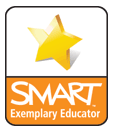A few days ago I had to give my last presentation at my MEd class. It was a great experience. Not only because it marked the end of a very important step in my professional development, but also because it was achieving a 2-year program that had to fit into a very busy schedule.
In terms of learning I had a great deal of it, personally and as a member of a great group of professionals of different areas (interpreter/translator, librarian, teachers, dentists, police men, linguist, lawyer, graphic designer, and me, a biologist turned educator). The perspective to see many things was very rich coming from such a diverse group.
My last presentation was about the education in the future, in order to prepare for that I had to review a large amount of information from the past and try to set one of the possible scenarios for the near future of education, I don't think anybody can accurately predict the long term future of education, changes are too rapid and technologically strong to predict something for more than 15 years.
It was undeniable for me to foresee, as many others have done that the way we assess and evaluate students will not serve a real purpose in the long run. We´ve been assessing students' knowledge based on the amount of information they can remember. That might have been useful before, but nowadays anybody with internet access can have access to almost infinite amounts of information. Definetely, that is not the ideal way we want to make sure we're educating our students right. It is not how much information they may remember or memorize, it is what they can learn, create or produce from it that really matters.
The following video is a great way to see that, it is an experience called I Scientist in the UK:
I Scientist film from Storymakers TV on Vimeo.
The following video speaks for itself, let's democratize education and have mistakes being a part of the learning process.
These are some of the words I could type in my iPod while I was reading about learning theories and i think it's useful for my thesis that tries to link use of technology with learning strategies:
Education in the 21st century must not be restricted to theoretical and abstract knowledge acquisition. It is imperative to put even more emphasis in skills that promote obtaining, selecting and analysis of large quantities of information in short periods of time.
Learning must be active in the sense that any learner must have the capacity to take informed but fast decisions based on vast amounts of information presented in different formats, in order to produce analytical comments and recommendations presented in visually-frienly and attractive formats.
Learning must be based on training of skills on the move, and the evaluation methods must be modified from assessing the amount of processes in what Vigoysky calls, the Zone of Real Development, and the Zone of Proximal Development. This is of great importance due to the fact that the amount of information available to anybody with Internet access is practically infinite. It would be counterproductive to pretend that society can determine the professionalism of a person, or the academic or developmental potential of an individual based solely on the amount of knowledge already acquired, instead of the potential production and creative solutions that individuals can provide if learning skills are directed and trained.
These skills are hardly obtained if the student is left untrained. And it is in this part where today's students are found in significant amounts. The economic constraints in developing countries imposed by superficial needs to follow the lifestyle of developed countries, obliges parents to maintain more than one job at the same time, leaving young students (teenagers) at the will of mass communication media and their own to overcome the academic exigencies imposed by public and private schools.
Once these young students are left alone or minimally supervised at home, they are prone to the actions of a massive avalanche of information that demands the information user to be developmentally mature, a blending between the concrete and abstract operational stages described by the famous psychologist Jean Piaget decades ago.
It is the formation of the personality, organizational skills and academic goals,or their absence what will determine the perspective and desire of learning for the future life of young students.
The essential skills to be developed have to cover these gaps of parental attention and circumstancial solitude facing the academic demands. Cognitive and metacognitive skills, in that order take years of academic training, usually obtained in the years spent in higher education. However, the cultural, economic and technological demands require education to be oriented towards the formation of an individual with order, positive attitude and ambitious goals supported by a solid academic basis.
Based on Vigotsky's theory, the proximal area of development is the area that 21st century education must concentrate its efforts, because it is now impossible to sum up information and knowledge as could be done only a few decades ago. The amount of information is doubling in less than 5 years already, this infinite amount of information could not be acquired using traditional educational methods, mostly based on memorization and classic repetition of information. It is the intense training of cognitive and metacognitive skills in conjuction with clear practical applications to what is being learned, bringing real-life applications to my class and out of it.
12/23/2010
Subscribe to:
Comments (Atom)





 Linkedin/glazaro
Linkedin/glazaro Twitter/glazaro
Twitter/glazaro YouTube/sjtics
YouTube/sjtics Del.icio.us/glazaro
Del.icio.us/glazaro Technorati/glazaro
Technorati/glazaro MyBlogLog/glazaro
MyBlogLog/glazaro Blog/Gerardo Lazaro
Blog/Gerardo Lazaro
